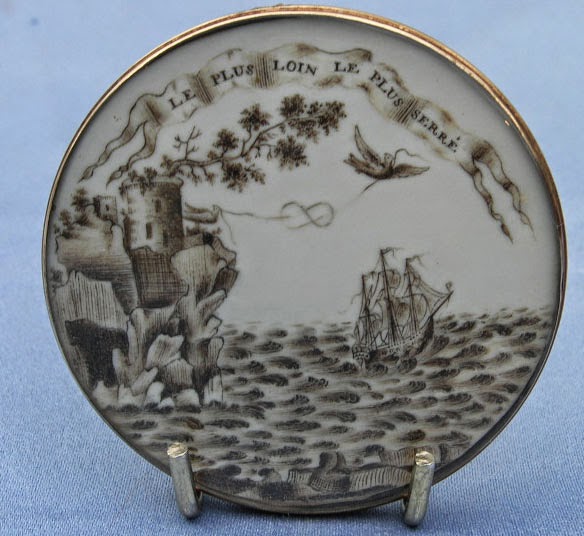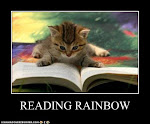And Doug may not be the hero of his own story; in many ways, this book is as much, if not more, about Sejal, the Indian exchange student, sent away from India to a bland-seeming American home because she has "the Google," an evidentl diagnosable illness that manifests as an inability to function without internet mediation. That is - Sejal's life is only real to her when it happens via webcam and internet connection.
The intricacies of the plot of Fat Vampire are better left alone until I've figured out how I feel about the book.
What I found immensely interesting and revelatory, however, is this passage from fairly late in the book (page 250 in the hardback library edition I read).
Control was the basis of all humor. Even as its most innocent, what was a joke or clever comment if not a way to take control? To become King of the Moment.That tired old chestnut, to laugh at oneself as a way of preempting the laughter of others, to make them laugh so they won't hit you, has an obvious referent in this quote. But what struck me most was not the comedy-as-control (or power) idea, but the really almost shocking "no wonder the popular, good-looking kids were so seldom funny."
People like him - the unbeautiful, the less popular - were almost inhuman in some people's eyes. They were a kind of pitiful monster, an aberration, a hunchback. ...The word 'geek' had once referred to a circus freak, hadn it? A carny who performed revolting acts for a paying audience. Was it so different now? See! him bite the head off a live chicken. Behold! as he plays Dungeons & Dragons at a sleepover.
Wasn't this how they always tried to compensate? To overcome a girl's disgust or another boy's contempt and make them laugh despite themselves was to take some small measure of control. No wonder the popular, good-looking kids were so seldom funny. They didn't have to be. Why else would people find it so hilarious to see some short kid's textbook stolen, held high above his head, out of reach? It wasn't funny - it was pure control. Insult comedy minus the comedy.
As far as literature is concerned, the funniest YA novels that I can think of also tend to have the dorkiest, or most outcast, protagonists. King Dork. Gordon Korman's masterpiece, A Semester in the Life of a Garbage Bag. Even Speak is funny, in its grim and dark way; Melinda's observations about high school never fail to make me laugh.
Then I started thinking about my own adolescence. Trying to recall one's own past as a way of measuring or evaluating texts is definitely dodgy, though recalling my teenage years is definitely less tricky than remembering back to my elementary school days, which at this point are largely a blur.
But last fall, while teaching the Adolescence class, I retrieved my old high school yearbooks from the back of the closet at my parents' house, where they've languished since the time I graduated. I dug them out because I was having trouble remembering how people dressed when I was in high school, and dress - or rather, identity through wardrobe - was a frequent topic in class. Finally, those yearbooks come in handy for something.
And flipping through them, appalled at the mid-90s belts-and-tucked-in-shirts of my schoolmates, I was reminded again of all those cheery smiling Popular People [I was not cheery, smiling nor popular in the slightest]. I tried thinking of the people who were funny, the people who made jokes or snide remarks or sarcastic comments that made me laugh. Admittedly I can be hard to please; crude or obvious humor, and anything slapstick, makes me cringe, not giggle. But still - I'm ready to laugh at things most of the time.
None of the shiny Popular People were the joke-makers.
I think of my post-high-school life, to the people who made me laugh, the people who I made laugh - and rarely are the funniest of them the ones who are also the most socially acceptable and well-adjusted.
This is not to say that well-adjusted, socially acceptable, well-liked people are not or cannot be funny. It's more to say that, both in my lived experience and representationally in fiction, they are not the stars of humor and comedy.
I think, if I had given this much thought before (which I haven't, truthfully), I would have chalked up the unfunniness due to a kind of obliviousness, a lack of observation skills. The gaps and chinks and lapses are often where humor lies, but you have to see them; you have to be perceptive in a big-picture way. You also have to be willing to stick your neck out, to leave yourself open to - well, yes, laughter - but also criticism. Humor often rocks the boat, and many of the upper-echelon folks are very happy with nothing but smooth sailing (and of course, because, as Adam Rex points out, they own the boat and they're in charge of the rudder, the sails and the charts).
Humor is also a way of being seen, of making oneself visible. As Doug muses, in Fat Vampire, the "unbeautiful" are barely human in the eyes of the "beautiful." The pretty people turn away from the freak show. To get looked at, to win attention - which again, is power and control - the unbeautiful need something. The Pretty People have their Prettiness, or an illusion of prettiness, and for a lot of them, that's enough to get noticed. It keeps them visible. But the D&D-playing geek? He needs to deliver something else. And humor - funniness - is one thing that is hard to resist, even if you're one of the beautiful people.
It's an interesting dichotomy: unbeautiful & funny/beautiful & unfunny. It's one that I find myself thinking about in the "real world" now, with people I know. It explains a few comments about the relative funniness of pranks, made my students who are clearly beautiful people; pranks which, to me, reeked of crudity and simple unkindness.
So much of bullying is written off with "it was just a joke," or explained as "i thought it would be funny." And so often that bullying is done by at least marginally Beautiful People. I've always had a hard time grasping these notions of humor, which are really just cruelty of a very simple-minded variety. Fat Vampire articulates, wonderfully, both the power/control issues at play, as well as the hierarchical divisions at play, in these kinds of situations.
I hope I'll remember to keep this in mind for future reading: who gets to be funny? Who truly is funny? and how do humor and control interweave?




